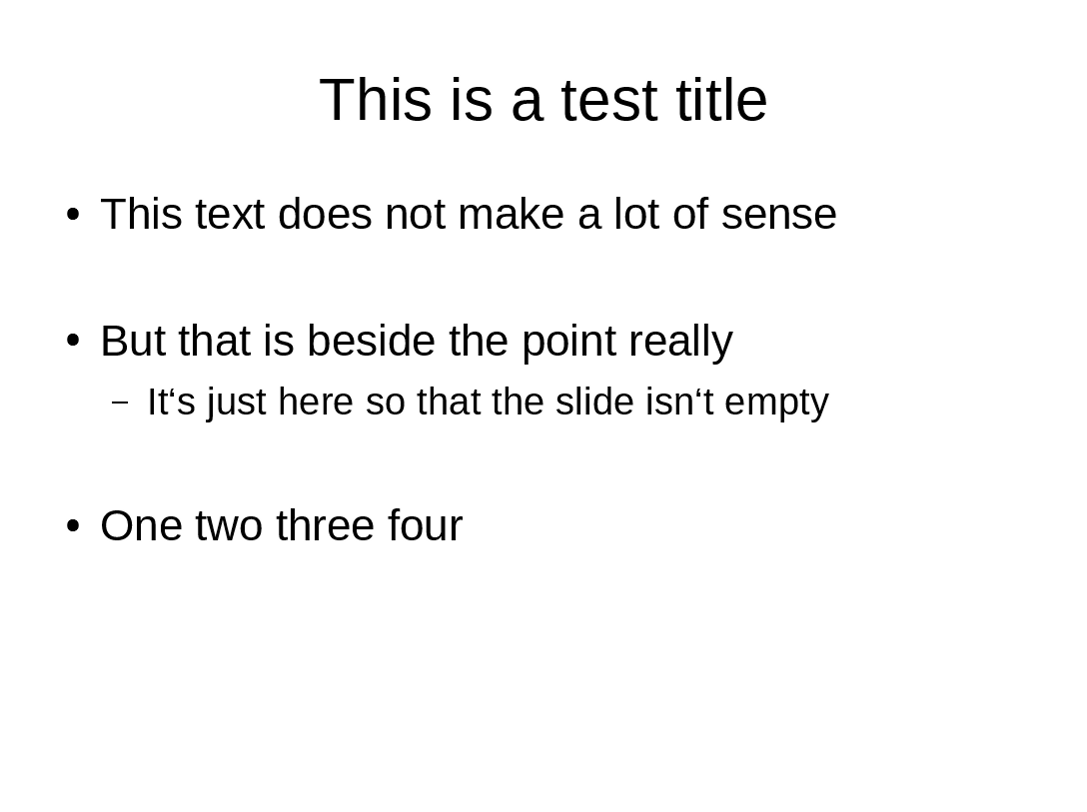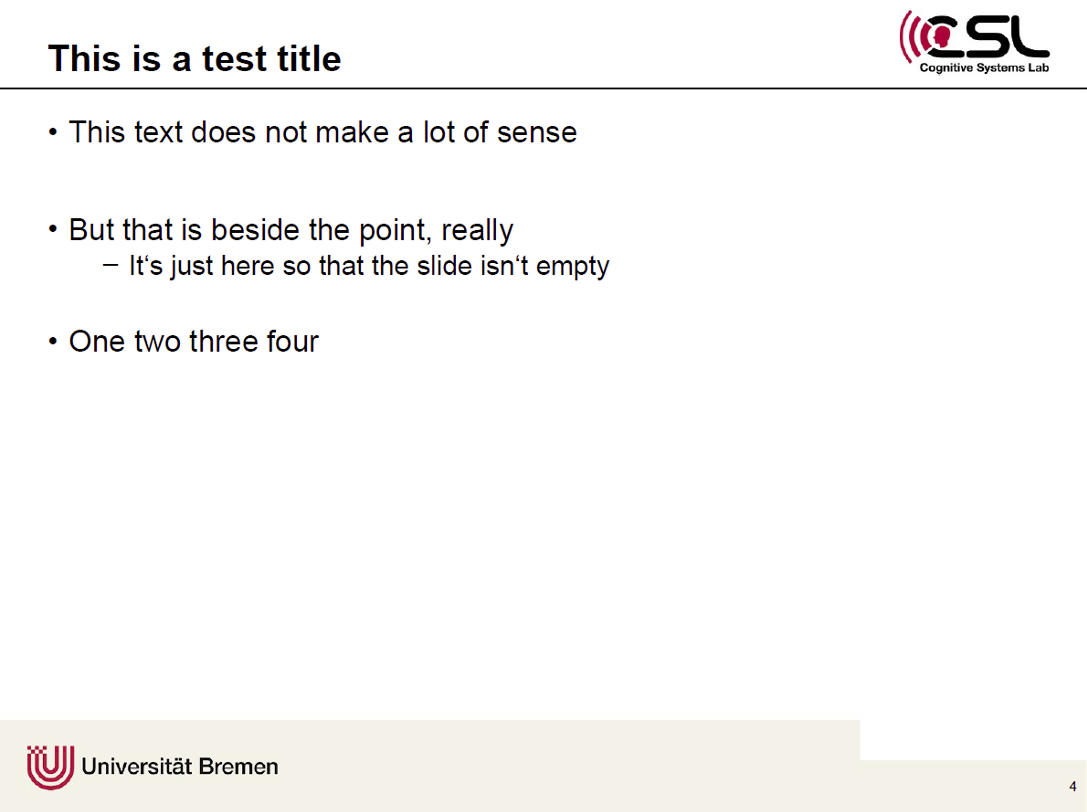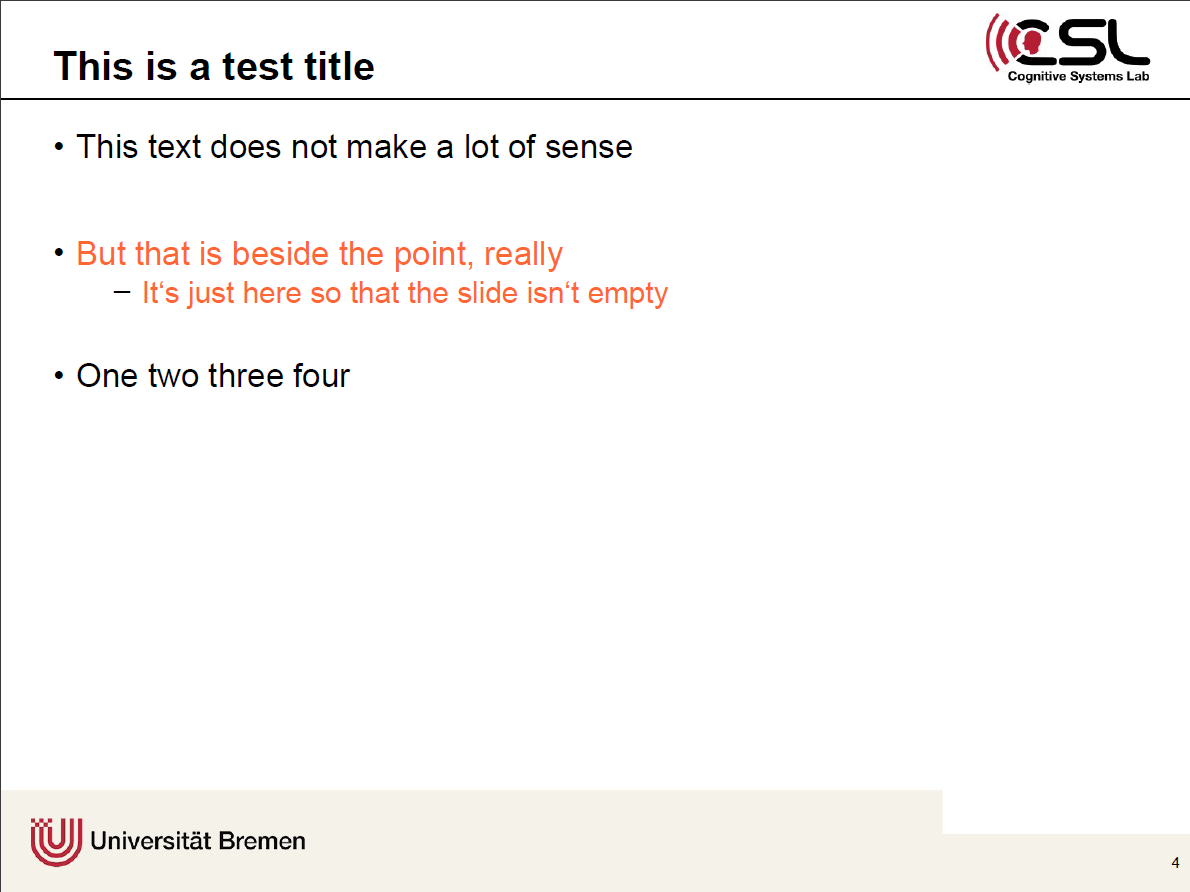Frequent easily avoidable mistakes in student presentations and how to not make them
If you are a university student, you’ll sometimes have to give presentations about research, mostly in seminars, but also for a thesis. I’ve supervised a lot of those as a PhD student, and I’ve seen people Do A Presentation Badly in all kinds of ways. Since, as an advisor, it’s much more fun to say “Wow! what a great presentation! we’re giving you the best grade!” than “we’re passing you, but only because we don’t want to be put through this again next year.”, I eventually started writing the ones that I think are most easy to dodge down so I wouldn’t forget anything when talking to students and giving feedback.
I think that this helped me a bit, so maybe it can help you? So here are, in no particular order, some things that I think would be good for students to keep in mind when doing a seminar or thesis presentation.
Actually prepare in time
This seems obvious, but: If you start making your slides the morning of your talk, they will be bad. If the first you think about your assignment is a week before the presentation date, you will not have any time to go through stuff with your advisor, and your talk will be bad. Speaking of that:
Talk to your advisor
Talk to them early and often. If there is something you do not understand, ask them. Send them your slides two weeks before the talk is due. Fix all the things they point out. Send them the slides again. You’re not going to manage to annoy them, or at least not make them nearly as annoyed as you as when they will be after they had to sit through your talk that was bad because you did not talk to them beforehand.
This isn’t because you are bad at making slides (okay, I don’t know you – it might be because you are bad at making slides), but because you, having worked hard to understand a topic, now have to explain it to people who know very little about it, which is hard – so it is best to cross-check with somebody who knows about as much as your average audience member, and that is your advisor (or, if you’re giving a conference talk, your colleagues – I usually ask colleagues to go over my stuff). While we’re at slides:
Have slides
Please. Don’t try to just talk in front of an empty wall (your listeners imagination and memory are not that good), don’t just project the paper on the wall. They don’t have to be super neat (please spell-check, though), but have slides. Something that can help:
Use a template, preferably your universities
Many universities have a slide master, often in your choice of LaTeX or PowerPoint. Unless you’re somehow not allowed to, use that. It looks professional, and often helps you avoid some basic pitfalls, such as not having your name and the date on the front page (there’s usually more than one talk a day, help us all avoid chaos) and not having page numbers (people will want to ask questions about specific things, and “can you go to the slide with the graph no not that one back five slides no actually this was too far” is fun for exactly no-one). If you can’t find one, ask your advisor. Otherwise, just use a nice one that comes with your presentation program. Just make sure of one thing:
 |
 |
|---|---|
Same slide, with two different masters.
Use large black text on a white background
The projector you’ll be showing your slides on will probably be terrible. It might, in rare cases, not be entirely terrible, but you should not assume that. The room you are presenting in might have windows, and the sun is very bright. What this means is that you need to be using high contrast colours (so that mushy projectoring plus sunlight messing everything up still leaves things legible) and big text (things need to be legible even from the back row). This also – especially – applies to any graphs or figures. If you have line plots, use thick lines. If you use colour, use a good colour scheme (Something like the new defaults in matplotlib 2.0). This will also help avoid problems when someone in the audience is colour blind and can’t tell which of your bars is the red or green one.
The orange text is nearly invisible when using a crappy projector during daylight hours.
If in doubt about text size, go for larger. If you run out of space, consider cutting stuff or being more concise rather than making the text smaller and packing everything closely, or maybe split the slide into two. Now that you have the perfect slides, nothing can go wrong anymore, except for one thing:
Have an appropriate amount of slides
Remember when I said “have slides”? Too much of a good thing is actually not good. You have a very limited time slot, usually 15 or so minutes. You are giving a scientific talk and will have to explain things. 2 minutes per slide is a good estimate, which leaves you with 7 to 8 slides maximum. It’s tempting to just make All The Slides, but it is not a good idea. At a seminar, people will get really annoyed at you for delaying everything. At a conference, you will just be plain cut off, up to getting-your-mic-muted levels of severity, even - or especially - if you’re a big, important professor and the session chair in control of the mute button is a PhD student. Take that, seniority. To help you avoid this:
Practice, out loud
You don’t necessarily need an audience for this, but go through your talk a few times, at least twice, not just in your head, but actually talking out aloud. The first time is important so you can actually, properly, figure out what you want to say (this is not something you can do just in your head, your mind will take every available shortcut and leave you just making half sentences without you even noticing). The second time and times thereafter are for practice so you can be so smooth when delivering the talk, but also so you can time yourself and figure out how long you’re actually taking. Now that you’re already thinking about what to say,
Don’t skip out on your research
It is, of course, okay not to know things, and when you don’t know something, “I don’t know” is the right thing to say, and in the questions after your talk, that’s fine – you can’t prepare for anything you might be asked – but for your talk, for everything you are actually saying out of your own volition, it really isn’t. Don’t know something? Do some research and find it out. As above, if you’re really having trouble, that’s why you have an advisor.
There’s one exception, which is you talking about something that science genuinely does not know (yet). In that case, “we do not know” is fine. Otherwise, either do your research and then speak with confidence, or – and if it’s just some detail that really isn’t all that important, this is absolutely an option – just don’t mention it. Now that you’ve prepared everything:
Do a tech rehearsal
Figure out where you will be giving your talk. Go into that room. Connect your notebook to the projector. Set it to project your slides. Do this reasonably early, preferably a day in advance. Arriving 5 minutes before you are up and then having connection problems is extremely not fun. If you have display adapters, bring them all. As a backup strat, bring your slides as a PDF on a USB stick. If you are very paranoid, or going to a conference and traveling, e-mail them to yourself as well. Are we all done? Nearly:
Summary
Have a summary slide at the very end of your talk that just has the three or four key points of what you said. You can have slides with a reference list after, but do not show them except possibly right before you disconnect your computer. Do not make a “thank you for your attention, any questions?” type slide (you can, and should, say it, of course – just don’t make a slide for it). Remember: There’ll be a discussion and questions session after your talk. You want to have your key points up on the projector screen during this, to help your viewers remember what you just talked about and to help guide questions.
I am going to deduct every point I can justifiably deduct from your grade.
Good luck, and and don’t worry: Nobody was born perfect, but you’re most likely way better at speaking than you think.
| tagged: | science |
| filed under: | wow I love listicles now |

